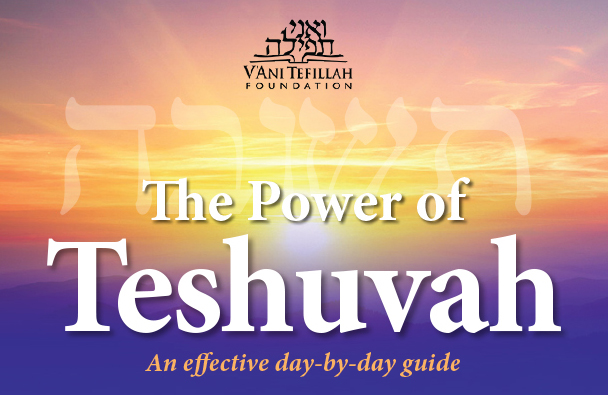The Power of Teshuvah – Day 27

Day 27
Productive Fear
In seventh grade, Yaakov was often disruptive in class, while the other boys were already able to concentrate and learn. His rebbi had tried time and again to inspire him to change his ways. Having exhausted all positive paths, one day, his rebbi took him aside and had a talk with him.
“You know that next year, you’ll be applying to high school,” the rebbi reminded him. “Who is going to accept you? You’re going to end up in a high school for troubled boys, and then you’ll have trouble too!”
“It doesn’t matter,” Yaakov replied despondently. “I can’t learn and a kid like me is anyway gonna get into trouble.”
The rebbi had hoped that his effort to instill a fear of consequences might rouse Yaakov to action. He had hoped to hear, “I better buckle down and get serious!” Instead, his words triggered nothing but despair.
If a person is suffused with fear of the consequences of his sins, will the inevitability of sin in every human life leave him feeling that effort is futile? Might he not feel that teshuvah cannot succeed, since, inevitably, he will sin again and become liable for all the consequences of his mistake?
The Torah recognizes the paralyzing impact of sin when, referring to Jewish soldiers going to war, it states, “Who is the man who is fearful and fainthearted? Let him go and return to his house.” Yet, the motivational value of fear is also recognized, as in the verse, “Fortunate is the man who always fears.” The discrepancy is reconciled by identifying the source of the fear. When a person fears separation from Hashem, his fear can motivate him to contemplate his spiritual situation and resolve to improve through teshuvah.
Recognition of the distance we put between ourselves and Hashem when we sin — and the dire consequences of that separation — should indeed sadden us. Yet, the broken heart is the optimal vessel for teshuvah. Until a person feels the piercing pain of “What have I done!” he is not ready to change his ways.
On the other hand, what of the reaction of a person like Yaakov in the opening story? What if fear of sin, instead of inspiring renewed effort, leaves a person feeling depressed and empty? In that case, a person can think, It doesn’t matter what I do. I’m nothing anyway. This can lead to further sin rather that to teshuvah, which can not only bring troubles upon the person, but upon the world as well, as we discussed in yesterday’s lesson.
The resolution is to know that despair and hopelessness are unwarranted; Hashem loves all of us, even the person who is brokenhearted due to his sins. As it is stated, “Hashem is close to the brokenhearted” and, “The sacrifices God desires are a broken spirit.”
Knowing that sin has dire consequences is not meant to send a person plunging into a sea of despair, but rather, to spur the regret that in turn inspires teshuvah. It is the teshuvah that blossoms from the fear and regret that brings unlimited blessing into the world. The Talmud states, “Great is repentance for it brings healing to the world,” as we find, the blessing in Shemoneh Esrei “Heal us, Hashem” comes after the blessing “Forgive us, our Father.”
Although sin has a devastating effect on a person’s life, teshuvah can truly overturn all these troubles, vastly enhancing our lives. Most important of all, teshuvah imbues our souls with their only source of real joy: a closer, purer relationship with our Father in Heaven.
Points to Ponder:
-
-
- When fear stems from regret over the distance between us and Hashem created by our sins, it has a positive impact.
- The negative emotion of fear gives rise to the positive power of teshuvah, which can overturn all the troubles brought about by sin and bring blessing in far greater measure.
-

